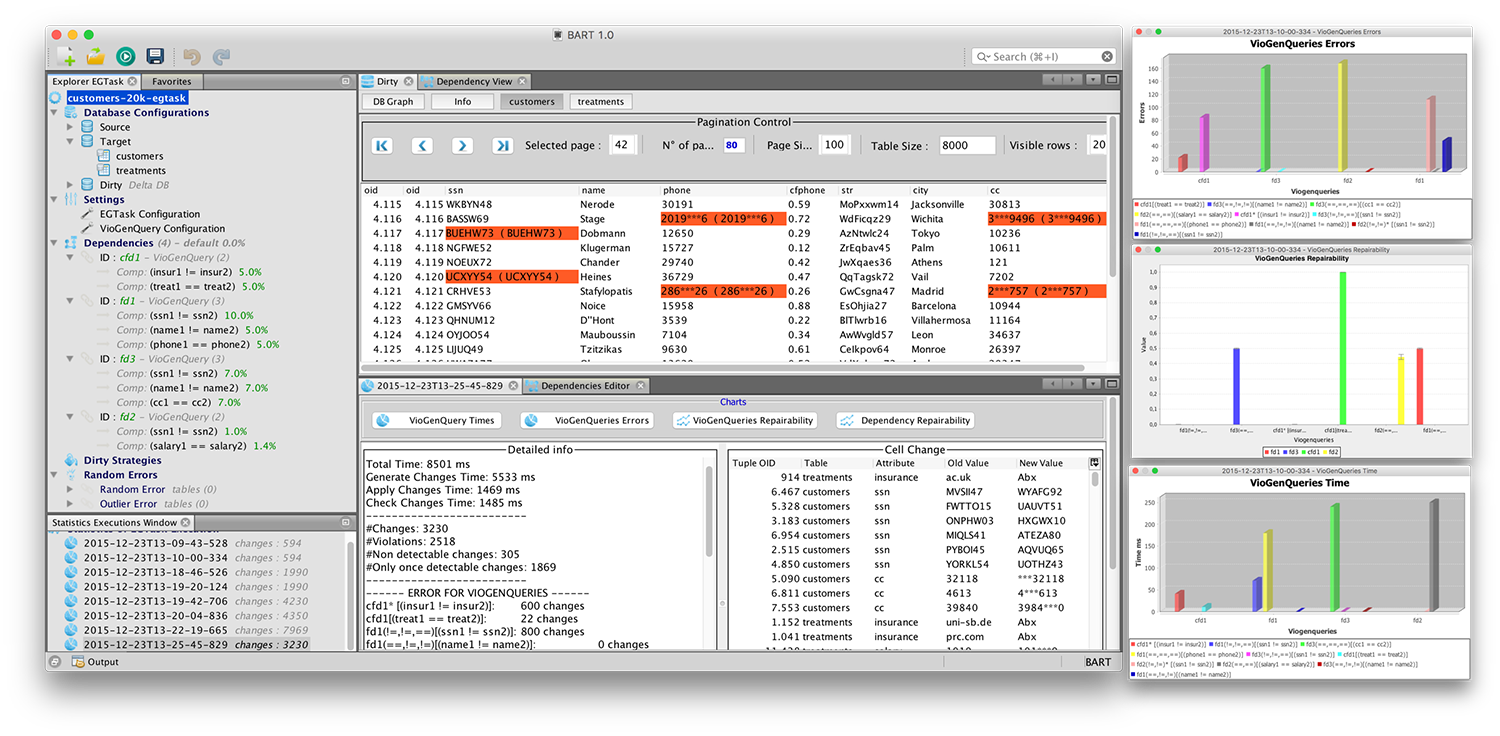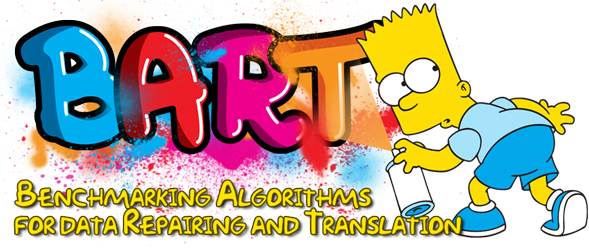BART (Benchmarking Algorithms for data Repairing and Translation) is an error-generation tool for data cleaning applications. Its purpose is to introduce errors into clean databases for the purpose of benchmarking data-repairing algorithms. It provides users with the highest possible level of control over the error-generation process, and at the same time scales nicely to large databases. This is far from trivial, since, as we show in our technical papers, the error-generation problem is surprisingly challenging, and in fact, NP-complete. To scale to millions of tuples, the system relies on several non-trivial optimizations, including a new symmetry property of data quality constraints.
Additional material about the project (papers and example datasets) can be found at the following address: http://db.unibas.it/projects/bart/
 An installer of the GUI (for Windows, OSX and Linus) is available under release section. After install, please check updates by selecting Help menu -> updates.
An installer of the GUI (for Windows, OSX and Linus) is available under release section. After install, please check updates by selecting Help menu -> updates.
Execute script ./run <egtask.xml>, for example ./run.sh misc/resources/employees/employees-dbms-2k-egtask.xml
An EGTask is specified in an .xml file (here a template), with the following sections:
1. Database configuration Is used to specify the JDBC parameters to access the DBMS. PostgreSQL and H2 DBMS are supported. Important: Starting from version 12, PostgreSQL removed support for OID generator. Therefore the last supported version of PostgreSQL is the 11.
Data can be automatically loaded into the database from XML and CSV files.
2. Dependencies specification
3. Task configuration
- printLog: (default = false)
- recreateDBOnStart: (default = false) To load DB every time on start
- applyCellChanges: (default = false) To apply cell changes
- cloneTargetSchema: (default = true) To apply cell changes on a copy of the original target
- useDeltaDBForChanges: (default = true) To use an optimized strategy for updates
- checkChanges: (default = false) To check, at the end of the process, if changes are detectable
- generateAllChanges: To generate all possible changes (default = false) - slow, only for toy examples
- avoidInteractions: Avoid interactions among changes. (default = true)
- errorPercentages: Error percentages for dependencies and comparisons. All percentages are wrt table sizes (# tuples)
How to evaluate a data-cleaning tool
- In NetBeans, File -> Open projects... and select the project folder
Bart_Engine - Execute ant target task
gfp, either using command-lineant gfp, or using NetBeans (in the projects windows, right click on build.xml -> Run Target -> Other Targets -> gfp)
The available examples are configured to connect to PostgreSQL with the username is “pguser”, with password “pguser”. If you don’t want to create this user, please change these two values.

